
Coming after the inherent social conservatism of the long Victorian age, the Edwardian era offered something of a breath of fresh air - from a rollerskating craze that swept the nation to the invention of ping-pong. However, it wasn't all fun and games: society still conformed to a strict class system, and people were governed by an exhaustingly long list of dos and don'ts - from not shaking anyone's hand to having all of your dinner conversation topics dictated by your hostess.
The tone of upper-class society was set by King Edward VII himself (see page 45), a man who loved to live life to the fullhe smoked huge numbers of cigarettes and cigars, had a string of mistresses, and enjoyed a diet stuffed with rich foods and alcohol. The families who made up the British aristocracy took their lead from him, eating sumptuous dinners, gambling into the early hours and often engaging in extra-marital affairs.
To live such a life of luxury required a small army of domestic servants. Working-class Edwardians could find employment as humble maids or kitchen assistants, or else take on the grander positions of housekeepers or butlers, who managed the great houses and made sure life ran smoothly. Or, if they were a particularly attractive or tall man, they might seek employment as a footman those who were blessed with good looks and a lofty stature often received higher wages, as they were the public face of the house to visitors. (For information about servants' daily routines, see box on page 39.)
DOING THE HARD GRAFT
Although it was a gruelling job, working in service was seen as a prestigious occupation, providing accommodation (although it might be a tiny attic room), food (which might be leftovers from the family's table) and job security. In 1911, more than 1.3 million people in Britain were working as domestic servants more than the 1.2 million who toiled the land, or the 971,000 who worked down the coal mines.
Diese Geschichte stammt aus der September 2022-Ausgabe von History Revealed.
Starten Sie Ihre 7-tägige kostenlose Testversion von Magzter GOLD, um auf Tausende kuratierte Premium-Storys sowie über 8.000 Zeitschriften und Zeitungen zuzugreifen.
Bereits Abonnent ? Anmelden
Diese Geschichte stammt aus der September 2022-Ausgabe von History Revealed.
Starten Sie Ihre 7-tägige kostenlose Testversion von Magzter GOLD, um auf Tausende kuratierte Premium-Storys sowie über 8.000 Zeitschriften und Zeitungen zuzugreifen.
Bereits Abonnent? Anmelden
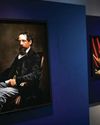
'Dickens's evocation of the fears, excitement and confusion of childhood is peerless'
DR LEE JACKSON ON WHY CHARLES DICKENS REMAINS RELEVANT TODAY
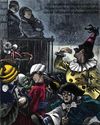
THE AUTHOR GOES ABROAD
Dickens expanded his horizons and boosted his fan-base by venturing overseas - but global fame came with a cost
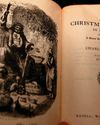
REVIVING THE FESTIVE SPIRIT
A Christmas Carol wasn't just a bestseller - it changed the way that Britons chose to mark the festive season
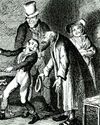
GIVING THE POOR A VOICE
From Hard Times to Oliver Twist, Charles Dickens used his pen to help illuminate the lives of the less fortunate
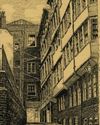
A JOURNEY THROUGH DICKENS'S LONDON
The works of Charles Dickens are synonymous with visions of Victorian London. We talk to Dr Lee Jackson about the author's love of the capital, and the locations that most inspired him
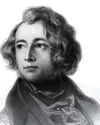
EXCEEDING EXPECTATIONS
Dr Lee Jackson chronicles Charles Dickens's journey from down-at-luck teenager to titan of Victorian literature

GIFTS, TREES & FEASTING
We take a journey through the photo archives to reveal how Christmas and its many traditions have been celebrated over the years - and around the world
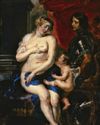
WHAT GREAT PAINTINGS SAY
We explore the story behind an allegorical painting that celebrates the triumph of love over hate, peace over war
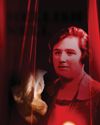
HELLISH NELL
Malcolm Gaskill delves into the life of Helen Duncan - the fraudulent Scottish medium whose ectoplasm-filled seances saw her ending up on the wrong side of the law

7 THINGS YOU (PROBABLY) DIDN'T KNOW ABOUT THE WHITE HOUSE
Presidential historian Dr Lindsay M Chervinsky reveals some of the most surprising facts about the world-famous US residence